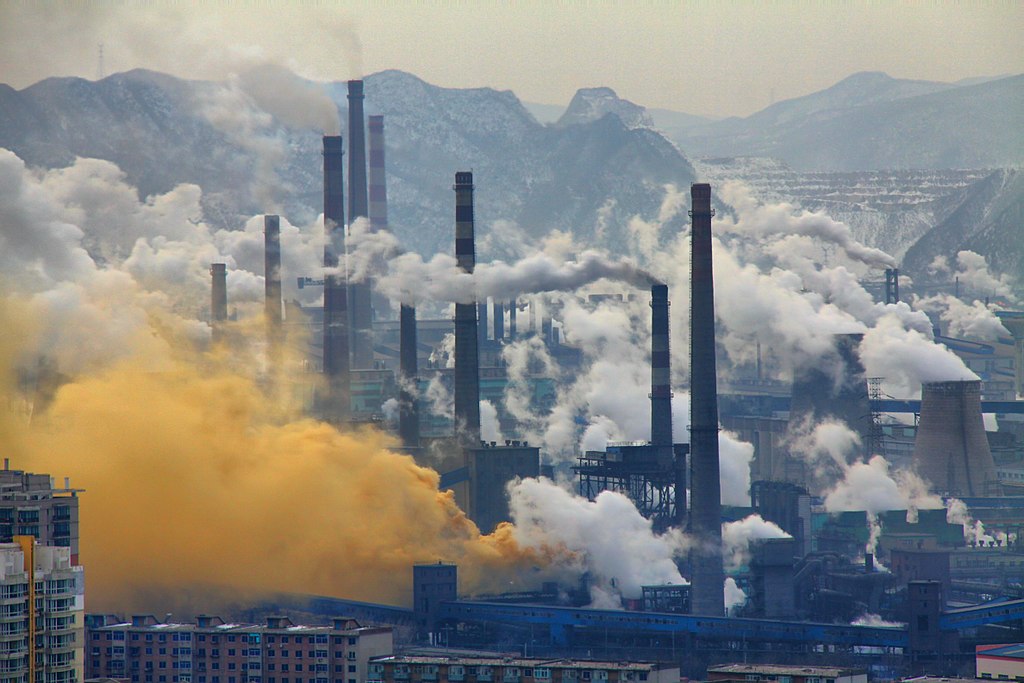Danielle Neighbour, Schwarzman Fellow
Gillian Zwicker, Research Assistant, Woodrow Wilson International Center for Scholars’ China Environment Forum
May 31, 2019
Chinese cities can learn from New York City’s wastewater resiliency plan to prevent flooding in treatment plants, as well as the city’s steps to address wastewater pollution.

Lily Hartzell, Freelance Journalist based in Beijing
Mar 01, 2019
While Washington battles over the Green New Deal, China has been on the cutting edge of green finance and is even providing a model for the European Union. Even so, crucial questions remain.

Danielle Neighbour, Schwarzman Fellow
Feb 01, 2019
The US-China trade war is shifting the way water is spent between the two nations. As trade talks resume, the United States and China should take the world’s most precious resource into consideration- or else risk detrimental shortages.

Li Zheng, Assistant Research Processor, China Institutes of Contemporary International Relations
Jan 29, 2019
The fifty-year history of space cooperation offers a more optimistic contrast to the China-US competition back on Earth.

Rob Efird, Professor of Anthropology and Asian Studies, Seattle University
Jan 29, 2019
All over the developed world, children are spending more time sedentary and in front of screens. Nature education is rising in popularity in China and the United States as a way to combat the detrimental effects of “nature-deficit disorder,” and instead offer children a healthy, satisfying and mutually sustaining relationship with the natural world.

Lily Hartzell, Freelance Journalist based in Beijing
Jan 25, 2019
China has shifted from a recalcitrant participant in global climate negotiations to a supporter of climate commitments on the world stage. Despite the US’s anti-globalist tendencies with climate policy, China, and the world, are still serious about combating global warming.

Danielle Neighbour, Schwarzman Fellow
Jan 09, 2019
China produces approximately 30 million tonnes of organic sludge annually - only approximately one-fifth of which is properly treated. A deadly combination of pollution and scarcity now threatens the future of China’s cities. New wastewater technologies being explored and piloted in both the United States and China can serve as a much-needed point of collaboration and exchange between the two nations.

Peter Bittner, Lecturer, University of California, Berkeley
Dec 12, 2018
President Trump’s controversial move last year to withdraw from the Paris Treaty leaves a leadership vacuum in the U.N., which China has readily stepped in to fill. But can China be trusted with this responsibility?

Daniele Brombal, Researcher, Ca’ Foscari University Venice
Angela Moriggi, Researcher at the Natural Resources Institute Finland – Luke
Nov 28, 2018
How is the tension between conservation and urbanization playing out in China?
Justin Yifu Lin, Former Chief Economist, The World Bank
Håvard Halland, Visiting scholar at the Stanford Global Projects Center (GPC) at Stanford University
Oct 29, 2018
Without massive amounts of long-term “patient” capital – which only institutional investors can muster – it will be impossible to transform energy systems fast enough to mitigate the risk of ecological, economic, and social disaster.